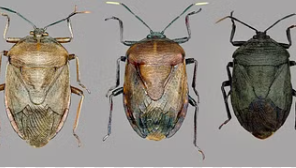Bengaluru Researchers Discover Three New Edible Bug Species
Entomologists from the Ashoka Trust for Research in Ecology and the Environment (ATREE) in Bengaluru have recently identified three new species of edible bugs that are traditionally eaten by indigenous communities in North-East India. This discovery underscores the importance of documenting and preserving traditional knowledge about edible insects, as many such species are still not well-documented despite their role as important food sources.
Significance of the Findings
The research has catalogued over 500 species of edible insects, highlighting their cultural and nutritional significance in local diets. The identification of these new species points to a growing recognition of entomophagy (the practice of eating insects) and its potential for sustainable food production.
Identification of New Species
The newly discovered bugs are part of the genus Coridius and belong to the family Dinidoridae. They range in size from 15 mm to 25 mm and primarily feed on plant sap. The researchers used a comprehensive approach, combining genetic analysis, measurements of physical traits, and classical taxonomy to identify these species. The new species are named
- Coridius adii
- Coridius esculentu
- Coridius insperatus.
Health Concerns and Ecological Studies
While some edible bugs are linked to health issues, such as neurotoxic reactions that can cause symptoms like photophobia (sensitivity to light), the study highlights the need for more research into the safety of consuming different insect species. It also emphasizes the importance of recording and safeguarding indigenous knowledge about these insects, ensuring that local communities are involved in managing their resources and that traditional practices are honored. Globally, around two billion people consume insects, with over 2,000 species recognized as edible. This research supports the promotion of insects as a sustainable protein source, which can complement traditional livestock farming that often has significant environmental impacts.
Facts About Ashoka Trust for Research in Ecology and the Environment (ATREE)
- The Ashoka Trust for Research in Ecology and the Environment (ATREE) was founded in 1996.
- ATREE works on ecological research, policy analysis, and engaging with communities.
- It uses a mix of different fields to tackle environmental problems.
- ATREE is involved in protecting wildlife and plant species.
- The organization is involved in projects related to climate change, conservation biology, and urban ecology.
Month: Current Affairs - August, 2024
Category: Environment Current Affairs






